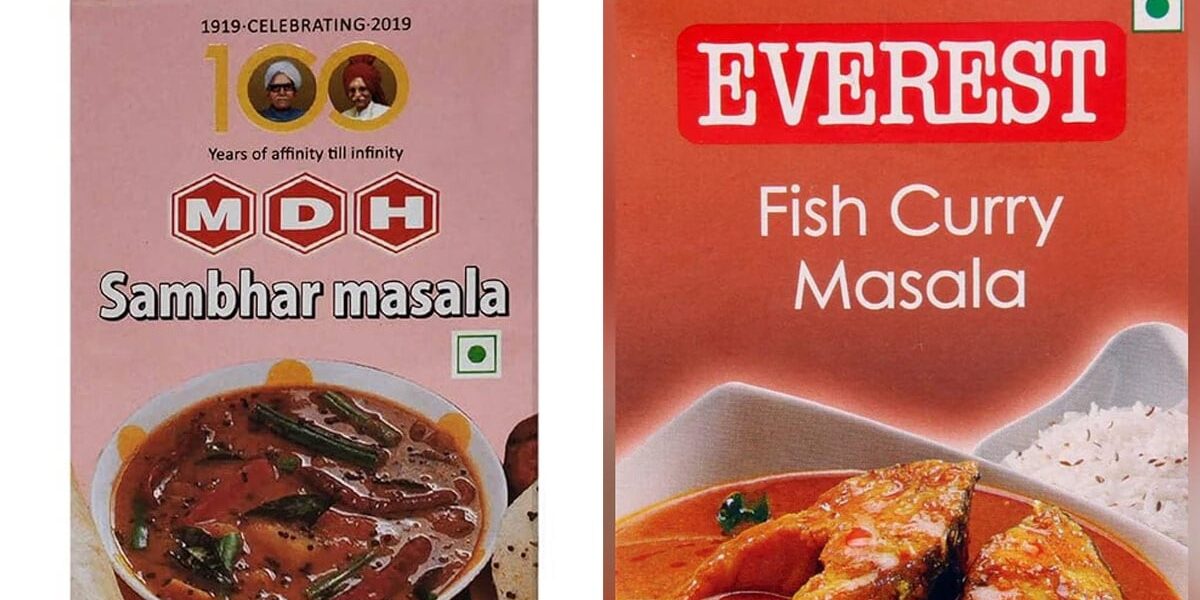The United States’ sharp declines in MDH exports due to salmonella contamination have sparked worries about food safety procedures in India’s spice sector. Examine the story, the ramifications, and the need of change.
With recent allegations of salmonella contamination and the discovery of carcinogenic chemicals in well-known spice brands, India’s spice business has been going through a difficult period. The well-known Mahashian Di Hatti (MDH), whose shipments to the US have witnessed a sharp increase in rejection rates because of salmonella infection, is one brand that has been in the news.
MDH in the Eye of the Storm: The Rejection Surge
The U.S. Food and Drug Administration (FDA) reported that, since October 2023, a startling 31% of MDH’s spice-related shipments have been rejected, up from the 15% refusal rate the year before. Concerns have been expressed about the company’s food safety procedures and quality control procedures by this concerning tendency.
Public Health Threatened by Salmonella Menace
It is no little problem when salmonella contaminates spices. Foods tainted with this bacterium may, if not cooked correctly, result in serious stomach illnesses and intestinal pain. The FDA’s conclusions emphasize the importance of strict sanitation procedures from harvesting to processing and packaging throughout the supply chain.
Inspecting and Observing: An Overview of the Facilities of MDH
When the FDA physically visited MDH’s production facility in January 2022, it found a number of alarming discoveries. There were inadequate hygienic facilities and lodgings at the facility, and the equipment and utensils were not built or planned to be properly cleaned or maintained, which might have resulted in contamination.
The Continuum: Hong Kong and Singapore Follow Suit
Concerns over MDH products have not stopped at American boundaries. Selling of several MDH and Everest Food Products Pvt Ltd spice blends has also been halted in Singapore and Hong Kong after purportedly identifying ethylene oxide, a carcinogenic pesticide that, with prolonged exposure, increases the risk of cancer.
The Big Picture: The Difficulties India Faces Exporting Food
The MDH story is just one element of a larger jigsaw. The U.S. Department of Agriculture reported that, between 2002 and 2019, India had the largest number of pathogen-related violations—5,115 food import refusals out of more than 22,000 pathogen and toxin violations found, or an astounding 22.9% percent.
Tightening the Reins: Quality Inspections by FSSAI
The Food Safety and Standards Authority of India (FSSAI) has started nation-wide quality checks for various brands of powdered spices in response to the suspensions in Hong Kong and Singapore]. This action seeks to guarantee compliance with food safety regulations and rebuild customer trust.
A Reform Call: Giving Food Safety Top Priority
The MDH case should alert regulatory bodies and the Indian spice sector. It emphasizes how urgently strong quality control systems, strict hygienic standards, and exacting testing procedures are needed. Consumer health can be protected and Indian spice exports can recover their foothold in global markets may be protected by giving food safety first priority.




One thought on ““US Rejects One-Third of MDH Exports Since October Due to Salmonella Concerns””